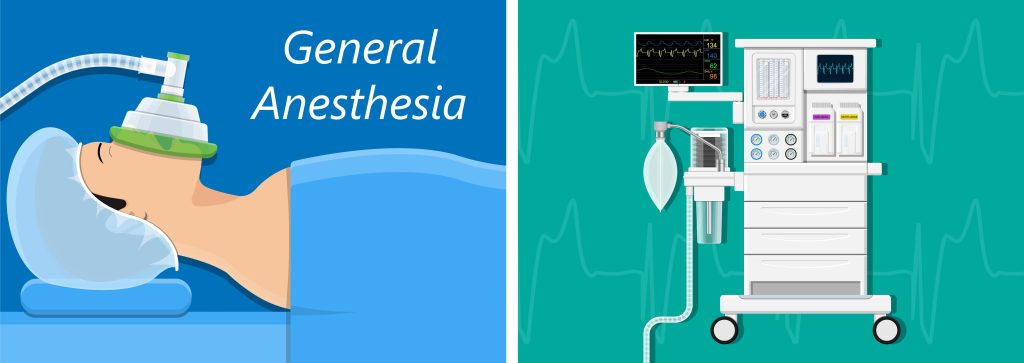Mark Kopec Now
Anesthesia
Understanding Anesthesia Errors: From the Baltimore Anesthesia Lawyer
Healthcare providers use anesthesia with the goal of preventing pain in surgeries and procedures. Anesthesia involves using medications, called anesthetics, to block the sensation of pain and sometimes even consciousness for a period of time. This webpage dives into the different types of anesthesia, their applications, administration methods, and then potential risks. We’ll also explore the role of medical professionals involved and potential medical malpractice claims. If anesthesia error has injured you, you may have a surgical error claim. You should then call the Baltimore anesthesia lawyer at the Kopec Law Firm.
Types of Anesthesia: Based on Your Need
The type of anesthesia chosen depends on the specific procedure and your overall health. Here’s a breakdown of the three main categories:
- Local Anesthesia: This numbs a small area of your body. Common examples include injections at the dentist’s office or stitching a minor wound. You’ll be awake and alert throughout the procedure. The anesthesia team can administer local anesthesia through:
- Injections: A medication is injected directly into the tissue to numb a specific area.
- Topical creams: Anesthetic cream is applied to the skin to numb the surface before procedures like minor skin biopsies.
The Baltimore anesthesia lawyer does not get many calls about local anesthesia injuries. It is the next two categories that make up most of the potential cases.
Most Common Anesthesia in Medical Malpractice Cases
- Regional Anesthesia: This numbs a larger area of your body, like an arm, leg, or lower back. You may be awake and alert during the procedure, or a sedation medication may help you relax. The anesthesia staff can administer regional anesthesia through various methods:
- Peripheral nerve blocks: An injection near a specific group of nerves numbs the area they supply. The healthcare providers commonly use this for surgeries on limbs.
- Spinal anesthesia: Medication is injected into the spinal canal, numbing the lower half of your body. This is often used for Cesarean-sections and lower body surgeries.
- Epidural anesthesia: Similar to a spinal block but the medication is injected into a space around the spinal cord allowing for a slower onset and continuous pain relief. This is commonly used during childbirth.
- General anesthesia: This renders you unconscious and unable to feel pain throughout the entire procedure. The anesthesia team typically use general anesthesia for major surgeries or procedures that require complete muscle relaxation. They usually administer it through a combination of:
- Intravenous medications (IV): The team injects medications directly into a vein for a rapid effect.
- Anesthetic gases (inhaled): You breathe in a gas mixture through a mask, which induces unconsciousness.
The Baltimore anesthesia lawyer at the Kopec Law Firm can review with you the specific type of anesthesia you received.

Anesthesia Heathcare Providers
Several healthcare providers work together to ensure your safety and comfort during anesthesia:
- Anesthesiologist: A medical doctor specializing in anesthesia who oversees the entire process. They will assess your health, choose the appropriate anesthetic, administer the medications, monitor your vital signs throughout the procedure, and manage any potential complications.
- Certified Registered Nurse Anesthetist (CRNA): A highly trained nurse practitioner who works under the supervision of an anesthesiologist. They can administer anesthesia, monitor your condition, and assist with pain management after surgery.
- Anesthesia technician: Assists the anesthesiologist and CRNA by preparing medications, monitoring equipment, and helping with patient care.
The Baltimore anesthesia lawyer can discuss with you the anesthesia staff that treated you.
Additional Considerations
- Pre-operative consultation: Before any procedure, you’ll have a consultation with the anesthesiologist to discuss your medical history, allergies, medications you’re taking, and any concerns you may have. This is a crucial opportunity to ask questions and ensure you feel comfortable with the planned course of action.
- Fasting instructions: Depending on the type of anesthesia, the healthcare staff may instruct you to fast, or refrain from eating and certain drinking, for a specific period before your surgery. This is to prevent complications like aspiration (inhaling stomach contents) during anesthesia.
- Pain management: After surgery, the healthcare staff should closely monitor you and provide pain medication to manage any discomfort. They can use different pain management strategies, including oral medications, intravenous pain pumps, or regional nerve blocks.
During your free consultation, the Baltimore anesthesia lawyer can assess additional considerations that affected the outcome of your procedure.
Risks and Complications: The Need for the Baltimore Anesthesia Lawyer
Anesthesia carries some risks. These can vary depending on the type of anesthesia used, your overall health, and the complexity of the procedure. Here’s a brief overview:
- Local anesthesia: Relatively low risk, but potential complications include allergic reactions, nerve damage, and temporary bruising or bleeding at the injection site.
- Regional anesthesia: Risks are slightly higher than local anesthesia and may include headaches, temporary weakness in the numbed area, and accidental injection into a blood vessel.
- General anesthesia: Carries the highest risk of complications, which can include nausea and vomiting, allergic reactions, breathing problems, awareness during surgery, and death.
Medical Malpractice Claims: Contact the Baltimore Anesthesia Lawyer
Unfortunately, anesthesia-related errors can occur. Accordingly, here are some potential grounds for medical malpractice claims:
- Improper selection of anesthetic: Choosing an inappropriate type of anesthesia for the procedure or your health condition.
- Anesthesia medication errors: Incorrect dosage, administration into the wrong location, or medication mix-ups.
- Failure to monitor vital signs: Not closely monitoring your breathing, heart rate, or oxygen levels during surgery.
- Delayed response to complications: Not promptly addressing issues like allergic reactions or breathing difficulties.
If you believe you suffered harm due to negligence during anesthesia administration, it’s crucial to consult with the Baltimore anesthesia lawyer at the Kopec Law Firm. Visit the free consultation page or video. Then contact the Kopec Law Firm at 800-604-0704 to speak directly with Attorney Mark Kopec. He is a top-rated Baltimore medical malpractice lawyer. The Kopec Law Firm is in Baltimore and pursues cases throughout Maryland and Washington, D.C.





